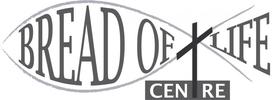The primary goal of this program is to ensure quality service delivery of legal advocacy for anyone needing assistance. If we can’t help you with your legal issue, we will support you in connecting with the local Legal Aid office.
We also serve the community by:
- Providing free legal information
- Hosting seminars and workshops for the community on legal issues and the law
- Providing access to booklets and pamphlets regarding a wide range of legal issues and rights
When you come to our office for legal assistance, you will complete an intake form and be interviewed by our Outreach Legal Advocate. Depending on your legal concern, we will:
- Give you legal information, or
- Help you complete a Legal Aid application, or
- Refer you to another agency that can help you
In certain circumstances, if you are physically unable to come to the Center, our Advocate may be able to come to your home. This will be assessed individually.
Legal Resources Links:
Please visit our Legal Resources Links page for more information.
Hours of operation:
Monday to Friday from 8:30 am to 4:00pm – call to book an appointment or to find out when the drop-in times are.
Telephone:
250-723-8281
1-888-723-7232 (toll-free)
Areas covered by the OLA program:
Income Security Program:
BCEA/Welfare, Persons With Disabilities, OAS/GIS applications, CPP & Disability applications, EI, WCB information
Housing:
Landlord/Tenants Dispute resolution hearings, eviction notices, repairs, SAFER/RAP applications, BC Housing & M’akola Housing applications
Family Law:
Information relating to child support or family maintenance, etc.
Other issues may include:
Info on criminal law, credit/debit law and personal bankruptcy, native Law info, mental health legal issues and refugee claims/immigration law. Make appropriate referrals when additional legal advice is needed.
If you are not sure you have a legal problem, call our office and ask us. If your problem does not fall into one of the areas listed above, we can provide some suggestions that might help you solve your problem without a lawyer.
When should I ask for assistance?
You should seek assistance as soon as you think you have a legal problem. It is important to get help with any legal problem you’re having – as early as possible. For Example: If you have received an eviction notice, you have only 5 days to apply for an extension of time to pay your rent.
What should I bring with me to the Port Alberni Friendship Center?
Ideally, bring as much information as possible in the event that it will help us support you to the best of our ability or be able to guide you to other resources. Examples if what will help are:
- Any information relating to your issue (Eg: eviction notice, letters, court documents etc.)
- Any papers that will assist with your legal concern such as applications, forms, etc.
- Be prepared to provided proof of income
You can get Legal Aid if:
- Your problem is covered by the Legal Aid rules, and
- You have no other way of getting legal help,
- Your income is below the limit in the Legal Aid rules.
If your income is above the limit, you may have to help pay for your lawyer. The amount you have to pay is based on your income.
What if I can’t get Legal Aid?
You can be refused Legal Aid for these reasons:
- Your income is too high
- You have too many assets, or
- Legal Aid does not cover your type of legal issue
Not everyone with a legal problem can see a lawyer, but we might be able to help you even if your problem is not covered by the Legal Aid rules. We may refer you to an agency that could help you or we may give you some legal information. If you are refused Legal Aid, you can also appeal that decision.
How do I appeal? Contact the Area Director or the Port Alberni Friendship Center for an appeal form.
We might be able to provide some suggestions that may help you to solve your problem without a lawyer.

